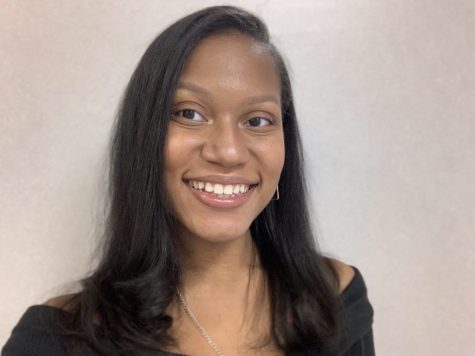The Say Her Name Movement puts the spotlight on black women
August 19, 2020
In the wake of this summer’s surge in Black Lives Matter protests and our return to campus, it is extremely important to keep the conversations about racial inequalities alive. In many states, people are still protesting and demanding justice for those wrongfully abused and murdered by the police. One aspect of this summer’s protests was #SayHerName, a campaign promoting recognition for the lives Black women have lost to police brutality.
#SayHerName is a campaign that was founded in 2014 by the African American Policy Forum and the Center for Intersectionality and Social Policy Studies with the intention of bringing attention to the lives of Black women and young Black girls who have been victims of police brutality, especially those who have lost their lives because of it. The campaign came as a response to #BlackLivesMatter because the movement mostly brought attention to the lives Black men had lost rather than providing equal attention to the lives lost by Black men and Black women.
The #BlackLivesMatter protests that happened all around the world this summer were sparked by the killing of George Floyd in May. Breonna Taylor, however, was fatally shot in her sleep on March 13 by Louisville Metro Police officers Brett Hankinson, Jon Mattingly and Myles Crosgrove. Both victims became the faces of this summer’s protests. The campaign became a prominent part of the summer’s protests to bring attention to Taylor’s death and became even more important after June 5, what would have been Taylor’s 27th birthday.
The #SayHerName movement isn’t just about Breonna Taylor, it’s about all the other Black women who have died in police custody. Breonna Taylor, Atatiana Jefferson, Tanisha Anderson, Sandra Bland, Charleena Chavon Lyles, Korryn Gaines, Alexia Christian, Michelle Cusseaux, Pearlie Golden, Miriam Carey, Yvette Smith and Aura Rosser are just a few names of Black women killed in the last decade. This was released by the AAPF and CISPS in the #SayHerName brief.
Many women of color on Iona’s campus have been personally affected by their stories. Senior Lisbeth Guzman also used her social media presence to take a stand on the matter this summer.
“The different ways in which we can experience systemic racism can depend on anything from appearance, to our gender to sexual orientation,” Guzman said. “The #SayHerName movement has brought this into the conversation and I think that is very valuable if we really want to dismantle structural racism.”
Senior Keidy Matos was personally touched by the movement and the number of stories it has brought to light.
“This movement was able to bring awareness to victims that look just like me, who have been killed by authorities just for the color of their skin,” Matos said. “However, I am hopeful that this movement in some way was able to bring awareness and will change things in the future.”
While their stories serve as a reminder of systemic racism, the purpose of #SayHerName is to give these women their identity back and not allow them to just be the story of their death or a statistic. The movement isn’t solely about addressing police brutality, it’s also about looking at systemic racism and how it affects Black women in all stages of life, not only in death. Atira Barber-Ellis, a graduate student, has been very vocal on social media about the issues addressed by the Black Lives Matter protests.
“Too often we see narratives of black women in academia being forced to fit molds not made for them and gaslit by students and faculty for existing as we are,” Barber-Ellis said. “Say Her Name is as big as demanding justice for the brutal slaughter of Black women like Breonna Taylor and as small as respect me enough to stay my name right in the classroom without making a scene about how ethnic it is.”
For more information, please visit the AAPF’s website at AAPF.org



